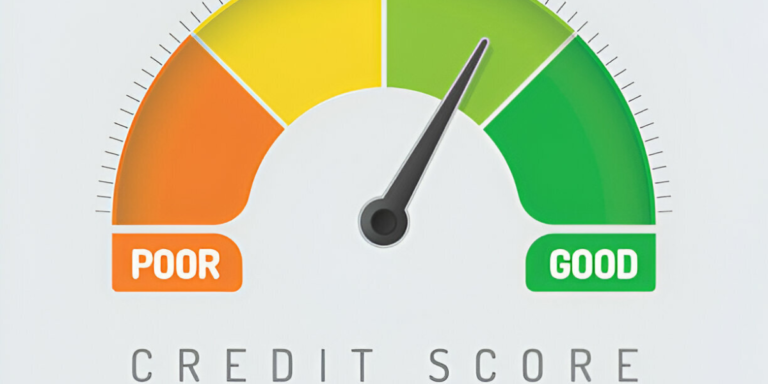
Auctions offer a unique opportunity for entrepreneurial individuals to acquire undervalued goods and resell them at a profit. From vintage collectibles to high-demand electronics, the variety of items available at auctions can cater to a wide range of markets. With the right strategy, attention to detail, and a willingness to learn, anyone can turn auction buying and reselling into a lucrative side business. This guide explores the steps and strategies to maximize your success in this dynamic and rewarding venture.
Understanding the Auction Landscape
Auctions are marketplaces where goods are sold to the highest bidder. They can be conducted in person, online, or as a hybrid of both formats. Depending on the type of auction, you may find items ranging from estate goods and surplus inventory to liquidated assets and rare collectibles. Understanding the nuances of each auction type is key to finding the best deals.
Types of Auctions
- Estate Auctions: Sales of personal property from estates, often including furniture, art, and antiques.
- Online Auctions: Platforms like eBay, GovDeals, and Bidsquare offer a wide range of items accessible from anywhere.
- Liquidation Auctions: Sales of surplus or discontinued inventory, often at heavily discounted prices.
- Government Auctions: Auctions of seized or surplus goods, including vehicles, electronics, and tools.
Knowing where to look and what to expect helps you identify opportunities that align with your interests and expertise.
Researching and Selecting Profitable Items
The key to a profitable auction business lies in identifying undervalued items with strong resale potential. Thorough research ensures that you make informed decisions and avoid overpaying for goods that may not sell quickly or at a profit.
Identifying Market Demand
Start by researching which types of items are in demand within your target market. Tools like Google Trends, eBay sold listings, and market research reports provide valuable insights into consumer preferences and pricing trends. Focus on items that have a consistent resale value and appeal to a broad audience.
Assessing Item Condition and Value
Inspect the condition of items carefully, as this significantly affects their resale potential. At in-person auctions, examine items for damage or defects. For online auctions, review photos and descriptions thoroughly and ask questions if necessary. Use tools like price comparison apps or historical sales data to estimate the value of each item.
Setting a Budget
Establish a clear budget for each auction you attend, including maximum bid amounts for specific items. This helps prevent overbidding, ensuring you maintain profitability even after factoring in fees, shipping costs, and resale expenses.

Mastering the Bidding Process
Successful bidding is both an art and a science, requiring strategy, patience, and adaptability. Whether you’re participating in a live or online auction, understanding bidding dynamics increases your chances of securing great deals.
Timing Your Bids
In live auctions, avoid jumping in too early. Let the bidding settle before making your move to gauge competition and avoid driving up prices. In online auctions, timing your bids closer to the auction’s end can give you an edge, especially in competitive categories.
Understanding Auction Fees
Be aware of additional fees, such as buyer’s premiums, taxes, and shipping costs, as these affect your overall expenses. Calculate these costs beforehand to ensure your bids remain profitable.
Practicing Restraint
Emotional bidding can lead to overpaying for items, eroding your profit margins. Stick to your budget and avoid getting caught up in bidding wars. Focus on the long-term profitability of your business rather than short-term wins.
Preparing Items for Resale
Once you’ve successfully acquired items at auction, the next step is preparing them for resale. Presentation, accurate descriptions, and strategic pricing are essential for attracting buyers and maximizing returns.
Cleaning and Repairs
Ensure that items are clean, functional, and presentable before listing them for resale. For example, furniture may require polishing, electronics may need minor repairs, and collectibles might benefit from professional appraisal or certification. Small investments in improvement can significantly enhance resale value.
Photographing Items
High-quality photos are crucial for online sales, as they provide buyers with a clear view of the product’s condition and features. Use good lighting, multiple angles, and detailed close-ups to showcase the item effectively.
Writing Compelling Descriptions
Accurate and engaging descriptions help build buyer trust and highlight the item’s value. Include key details such as brand, dimensions, condition, and unique features. Use keywords strategically to improve search visibility on platforms like eBay or Etsy.

Choosing the Right Sales Channels
Selecting the appropriate platform or method for reselling your items is critical to reaching your target audience and optimizing profits. Different channels cater to different markets and types of goods.
Online Marketplaces
Platforms like eBay, Amazon, and Facebook Marketplace are ideal for reaching a wide audience. These sites offer user-friendly tools for listing and managing inventory, as well as access to a global customer base.
Specialized Platforms
For niche items, consider using platforms tailored to specific categories. For instance, Poshmark or Depop are great for fashion, while Reverb specializes in musical instruments. These platforms often attract buyers specifically looking for items in your category.
Local Sales and Events
Flea markets, estate sales, and pop-up events are excellent options for selling items locally. These venues allow for direct interaction with buyers and eliminate shipping costs, boosting your margins.
Scaling Your Auction Business
As your auction business grows, consider strategies to scale your operations, increase efficiency, and expand your customer base. Automation, partnerships, and diversification can help you achieve long-term success.
Building Supplier Relationships
Establish connections with auction houses, estate sale organizers, and liquidators to gain early access to inventory and secure favorable terms. Strong relationships often lead to exclusive deals and reliable sourcing channels.
Automating Processes
Leverage tools like inventory management software, automated listing platforms, and shipping solutions to streamline operations. Automation reduces manual tasks, allowing you to focus on sourcing and selling.
Diversifying Inventory
Expand your offerings to include a broader range of products, catering to multiple market segments. For example, combine vintage collectibles with high-demand electronics or trendy home goods to appeal to diverse buyers.
Challenges and How to Overcome Them
Running an auction-based business comes with challenges, including competition, fluctuating demand, and logistical hurdles. Addressing these issues proactively ensures sustained profitability.
Managing Inventory
Avoid overstocking by regularly reviewing your inventory and focusing on high-demand items. Use data analytics to track sales trends and adjust your purchasing strategy accordingly.
Dealing with Competition
Stay competitive by offering superior customer service, unique products, and competitive pricing. Building a strong brand identity and cultivating repeat customers enhances your market presence.
Navigating Market Volatility
Monitor market trends closely and diversify your inventory to mitigate risks associated with changing consumer preferences. Flexibility and adaptability are key to navigating fluctuations effectively.
The Conclusion
Turning auctions into a profitable side business requires a combination of research, strategic planning, and a keen eye for value. By identifying undervalued goods, mastering the bidding process, and leveraging effective resale strategies, you can create a sustainable and rewarding venture. While challenges exist, they can be overcome with preparation, innovation, and dedication. Whether you’re a seasoned entrepreneur or a newcomer looking to explore this exciting market, the world of auctions offers endless opportunities to grow your business and achieve financial success.




